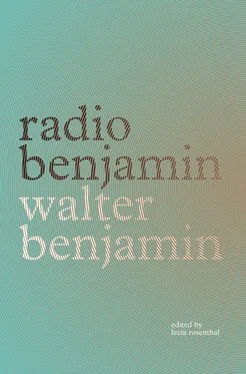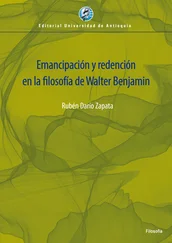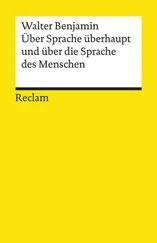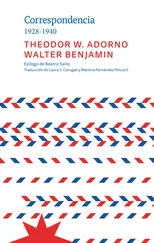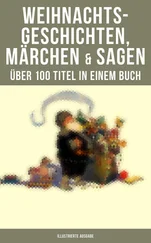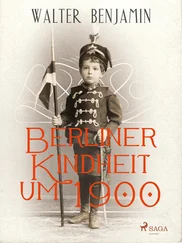But it is getting late and Rellstab wants to tell us about a few more pranks:
My Tiergarten pals and I got into all sorts of other mischief: performing daring raids on fruit trees and fruit sheds; driving a fruit seller crazy by fastening a meaty bone, which hung unnoticed behind a fence, to her service bell so that every passing dog was enticed to ring it; holding a string across the path just outside a tavern, where it wasn’t rare to see tipsy guests stumbling about in the evening, until a group tripped over it and fell into the wet grass and then, after immediately releasing the string, innocently setting out to find the cause of the stumble. I’ll say no more just now, except to mention briefly that in this way, too, I was no better than other children, and actually much worse. 9
And so you can see, from his own words, how a real Berlin guttersnipe cavorted about the city at a tender age. As later in life we often succeed best at precisely those things we loved and plotted early on, the same was true for Rellstab. His greatest achievements arose not from music criticism, from which he later earned his living, but rather from things intimately associated with Berlin. In addition to these childhood memories, he also has a book, simply titled Berlin, a description of the city and its nearest surroundings, including many beautiful steel engravings. 10On the title pages there’s one such engraving that depicts the Tiergarten memorial to Frederick William III. Of all the areas of the Tiergarten, my most beloved is the spot where this memorial is tucked away. I played there as a very small child and to this day I’ve never forgotten how exciting it used to be to meander along the winding paths to the Queen Louise Memorial, which was even more secluded, hidden among the bushes and separated from the king by a narrow stream. The area around these two monuments was the first labyrinth I would encounter, long before I would sketch them on blotting paper or my desk during school. 11In this regard I’d say little has changed: your blotting paper doesn’t look all that different than mine did.
In any case, for those of you who enjoy labyrinths, I will close with one last inlay. I’d like to reveal the exact location of the most beautiful labyrinths you’ll ever see: the home of the bookseller Paul Graupe, a large and wonderful house with an entire hall dedicated to fascinating labyrinths of cities, forests, mountains, valleys, castles, and bridges, each meticulously drawn in pen by the Munich painter Hirth so as to invite you to wander with your eyes. 12But clean your boots on the way in; Paul Graupe’s is a very elegant place. And when you’re standing among the maps, plans, and cityscapes you’ll find there, have a look out the window, and right before your eyes you’ll see the Tiergarten again; which means our walk today has been rather labyrinthine, leaving us, without ever having noticed, right back where we began twenty-five minutes ago.
“Ein Berliner Strassenjunge,” GS, 7.1, 92–8. Translated by Jonathan Lutes.
Broadcast on Radio Berlin, March 7, 1930. Benjamin dated the typescript “Berlin Radio, 7 March, 1930.” For this date, the Funkstunde announced “Youth Hour (Berlin). Speaker: Dr. Walter Benjamin,” from 5:30–6:00 pm.
1Heinrich Friedrich Ludwig Rellstab (1799–1860), German poet and critic, author of Aus meinem Leben [From My Life] (Berlin: J. Guttentag, 1861).
2Rellstab, Aus meinem Leben, 18.
3Ibid., 18–20.
4Franz Hessel, Spazieren in Berlin (Leipzig and Vienna: Verlag Dr. Hans Epstein, 1929). References to and discussions of Hessel (1880–1941), with whom Benjamin collaborated on the translation of Proust, appear frequently in his work. See, for instance, “Die Wiederkehr des Flaneurs,” a review of Spazieren in Berlin, in GS, 3, 194–9 (“The Return of the Flâneur, ” SW, 2, 262–7).
5Rellstab, Aus meinem Leben, 38–9.
6On “Zillrad,” see Rellstab, Aus meinem Leben, 41.
7The renowned Vossische Zeitung was published in Berlin and was the city’s oldest daily newspaper. Rellstab’s father, the music publisher and composer Johann Carl Friedrich Rellstab (1759–1813) was a critic for the Vossische Zeitung from 1808 to 1813.
8Ottokar Fischer (1873–1940), who, from 1898 to 1911, managed and appeared at the Kratky-Baschik Magic Theater in Vienna, wrote Das Wunderbuch der Zauberkunst (Stuttgart: F. A. Perthes, 1929).
9Rellstab, Aus meinem Leben, 152–3.
10See Rellstab, Berlin und seine nächsten Umgebungen in malerischen Originalansichten: Historisch-topographisch beschrieben (Darmstadt: Gustav Georg Lange, 1852).
11For Benjamin’s memories of the Tiergarten and the motif of the labyrinth, see Berliner Kindheit um neunzehnhundert, GS, 7.1, 393–5 ( Berlin Childhood Around 1900, SW, 3, 352–4).
12Paul Graupe (1881–1953) was an antiquarian bookseller, auctioneer, and art dealer who, until he fled the Nazis in 1936, was located in Berlin. The “Munich painter Hirth” is Otto Albert Hirth (1899–1969). Benjamin discusses an exhibition at Graupe’s featuring works by Hirth in his article “Unterirdischer Gang in Der Tiergartenstrasse” [Underground Passageway in Tiergartenstrasse], GS, 4.1, 563–5, published in Die literarische Welt on March 28, 1930, just a few weeks after the broadcast of “Berlin Guttersnipe.”
CHAPTER 6. Berlin Toy Tour I
Are any of you familiar with Godin’s book of fairy tales? 1Of all the children out there listening, perhaps not a single one of you. In the last thirty years of the previous century, however, it could be found in many a nursery, including the one in which the man speaking with you now spent his earliest days. The publisher kept reissuing new editions, each time with a different look, varying the colorful pictures according to the fashion of the time. However, quite a few of the somber images have remained the same since the very first edition. Let’s begin with a tale from this book: “Sister Tinchen.” 2Right on the second page of the story is one of these somber pictures. It shows five children miserably huddled together next to a dilapidated hut. They are in a truly wretched state. Their mother died that morning, and it’s been quite some time since they had a father. There are four boys and one girl. The girl’s name is Tinchen. But this is only the foreground of the picture. In the background one sees a fairy, delicate and doll-like, holding a lily. Her name is Concordia, which means “harmony.” She promises the children that she will protect them so long as they always get along. Scarcely upon hearing this, an evil wizard, the fairy’s enemy, arrives with a pile of gifts which he promptly throws to the children, causing them to quarrel. The boys, as boys will, begin to scuffle. Only the little girl does not join in the fray, so the devils cannot ensnare her in their sack as they did with the boys right away.
So far, you will tell me, this is a rather absurd story. And I would agree. But wait for what happens next. The little girl must, of course, free her brothers from the wicked sorcerer’s lair where the devils have taken them. And there, thanks to the good woman who thought up this tale and was otherwise not particularly known as a writer, something wonderful occurs. You’re surely familiar with the obstacles that rescuers must overcome in fairy tales. First they have to get through a door guarded by two savages with clubs, as on the former title page of the Vossische Zeitung. 3 And then they come to an immaculate, gleaming hall where they must pass between two freshly burnished fire-breathing dragons. And finally, in the last room they encounter a toad, or some other beast, which they have to kiss so that it transforms into a princess. In “Sister Tinchen,” whose heroine after all is just a little girl, who no one would imagine capable of such heroic and bloodthirsty deeds, everything is much more civilized. That is to say, she must do absolutely nothing if she is to free her brothers. For her entire journey through the land of the evil sorcerer she can’t pause even for a moment — until she reaches his cave. The sorcerer, who of course wants to make this impossible for her, conjures enticing images to coax her to linger. Were she to say, even just once, “Here I’d like to stay,” she would fall under his spell.
Читать дальше
